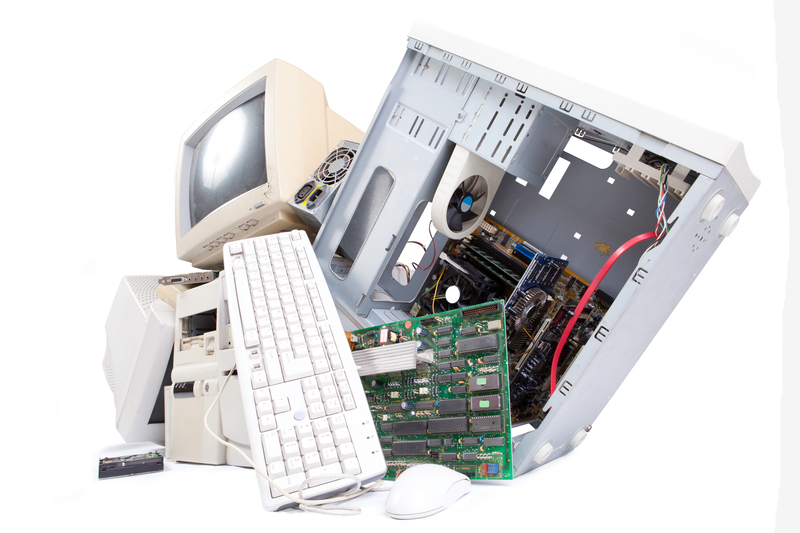Community Programs for Recycling Pots and Pans: A Comprehensive Guide
Recycling pots and pans is not only an eco-friendly initiative but also a responsible step toward reducing waste and conserving natural resources. With the rise of sustainability campaigns, local recycling programs are gaining momentum across communities worldwide. This comprehensive guide covers effective community programs for recycling cookware, how they operate, and how you can participate to make a meaningful impact.

Why Recycle Old Pots and Pans?
Cookware often comprises metals such as aluminum, stainless steel, copper, or even non-metallic materials like ceramic and glass. Unfortunately, when disposed of improperly, these materials can linger in landfills for centuries, leaching hazardous substances into the soil. Recycling used pots and pans helps conserve resources, reduce landfill waste, and minimizes environmental harm.
- Conservation of raw materials
- Reduction in landfill space used
- Prevention of soil and water contamination
- Lower energy consumption compared to producing new materials
Understanding the Types of Cookware Recycled
Before exploring community programs for cookware recycling, it's essential to understand what types of pots and pans can typically be recycled:
- Metal pots and pans: Stainless steel, aluminum, copper, and cast iron are the easiest to recycle.
- Non-stick cookware: These may require special processing due to their coating. Many centers now accept Teflon-coated items if the coating is removed.
- Ceramic and glass cookware: Can be recycled, but often through specialized facilities, not curbside pickup.
- Plastic cookware: Only certain types may be recyclable; always check for a recycling number.
Note: Before recycling, ensure cookware is clean and free from excess food residues.
How Do Community Programs for Recycling Cookware Operate?
Recycling companies partnering with local communities have established diverse programs designed to make it easy and effective for residents to dispose of their old pots and pans responsibly. Here's how these programs commonly work:
1. Curbside Recycling Initiatives
Some municipalities enable residents to include metal cookware in their curbside recycling. However, guidelines vary:
- Most accept uncoated metal pots and pans; check your local regulations.
- Non-stick coated pans may need the coating removed before inclusion.
- Always place loose cookware in recycling bins, not inside plastic bags.
2. Local Drop-Off Centers and Scrap Yards
Many cities have designated scrap metal recycling centers where you can drop off old cookware. These locations typically accept:
- All-metal cookware (aluminum, steel, copper, cast iron)
- Some centers will accept non-stick or enamel-coated items; always confirm in advance
- Electronics stores may accept cookware with electrical components (like electric skillets) during e-waste drives
Tip: Utilize find-a-center tools online by searching for "recycle scrap metal near me" for the best local options.
3. Special Community Collection Events
Many towns and cities organize household recycling events where residents can bring various hard-to-recycle items, including worn or damaged pots and pans. These events may be seasonal or annual, and often coincide with other environmental initiatives.
- Check municipal websites for upcoming events
- Some organizations partner with local businesses for cookware collection drives
- Events may provide discounts or incentives for dropping off items
4. Non-Profit and Charitable Organization Programs
Before recycling, consider if your gently used cookware is still functional. Numerous charities, shelters, and thrift stores welcome donations of still-usable pots and pans. Some non-profits, such as Goodwill, Salvation Army, and Habitat for Humanity ReStores, collect utensils for resale or redistribution to families in need.
- Donation: Always clean and inspect items before donation
- Upcycling: Some organizations creatively repurpose cookware into art or garden features
How to Prepare Pots and Pans for Recycling
To ensure your old cookware can be successfully recycled, proper preparation is essential. Follow these steps:
- Clean thoroughly. Remove grease, food residue, and debris.
- Separate materials. If your cookware has plastic, glass, or wooden handles, remove these if possible.
- Remove non-stick coating. If required by your program, scrape off Teflon or similar coatings.
- Check guidelines. Contact your local recycling provider or visit their website for specific requirements.
Notable Community Recycling Program Examples
TerraCycle's Cookware Recycling Program
TerraCycle, a leader in hard-to-recycle goods, offers nationwide cookware recycling solutions. Residents can mail in pots, pans, and kitchen tools, regardless of condition. Their Zero Waste Boxes are available for individual or community use, ensuring that even items not accepted in traditional recycling streams are responsibly processed.
Local Scrap Metal Collection Programs
Many municipalities partner with scrap metal processors, hosting bulk recycling days throughout the year for metal goods, including cookware. Examples include:
- San Francisco's Recology Public Drop-Off program
- New York City Department of Sanitation's Special Waste Drop-Off Sites
- Chicago's Annual Scrap Metal Drives
Goodwill and Charitable Drives
Non-profit organizations across the country accept reusable pots and pans. Many local food pantries, refugee programs, and homeless shelters include cookware in their donation lists, offering those transitioning into stable housing access to necessary household items.
Creative Ways Communities Encourage Recycling of Pots and Pans
Beyond standard recycling, some innovative programs and events foster a culture of reuse and creativity:
- Cookware Swap Events: Residents bring usable pots and pans to swap with others, extending the lifespan of these items.
- Community Art Projects: Old cookware is transformed into public sculptures or garden installations, raising environmental awareness.
- Educational Workshops: Classes on repairing or upcycling old cookware, offering alternatives to disposal.
These programs not only divert waste but also strengthen community bonds by bringing people together for a greener cause.
Challenges in Recycling Pots and Pans
While progress has been made, there are several challenges to recycling cookware in local communities:
- Mixed materials: Cookware often combines metals, plastics, and chemicals (like non-stick coatings) that are difficult to separate and process.
- Lack of awareness: Many are unsure if cookware can be recycled or where to take it.
- Contamination: Items contaminated with food, oil, or other substances can be rejected by recycling facilities.
- Limited facilities: Not all communities have the resources or partnerships necessary to offer dedicated cookware recycling programs.
Tips for Community Members to Support Local Recycling Initiatives
Individuals can play a crucial role in making pots and pans recycling programs a success. Here are some actionable steps:
- Stay informed: Regularly check your city's waste management website for updates on recycling services.
- Educate others: Share information at homeowners' association meetings, school events, or on social media.
- Organize drives: Work with local officials to host a neighborhood cookware recycling event.
- Promote donation and reuse: Encourage friends and family to give functional cookware a second life before recycling.
- Practice sustainability: Choose durable cookware with recyclable materials for future purchases.

Sustainable Alternatives to Disposing of Old Cookware
Instead of contributing to landfill waste, consider these eco-friendly alternatives:
- Repurpose: Turn old pots into planters, storage bins, or quirky decor.
- Donate: Share with family, friends, or local shelters.
- Upcycle: Transform into art, garden tools, or fun DIY projects.
- Trade or sell: Online platforms and yard sales can help find a new home for your gently used cookware.
Conclusion: Join Your Community in Recycling Cookware
Community programs for recycling pots and pans are vital in the movement toward a more sustainable and eco-friendly future. By participating in or promoting local initiatives, everyone can make a tangible difference. Remember, recycling old pots and pans is more than just a responsible act--it's a way to save resources, protect the planet, and contribute to community well-being.
Next time you're ready to part with kitchenware, explore your community's options, educate others, and spread the word. Together, we can ensure that recycling cookware becomes a standard practice in households everywhere.
Resources for Further Reading:
- TerraCycle - Cookware Recycling
- EPA - Reduce, Reuse, Recycle
- Goodwill - Donate Goods
- Earth911 - Local Recycling Centers
By participating in or initiating community programs for recycling pots and pans, each of us can help create a cleaner, greener, and more sustainable world.
